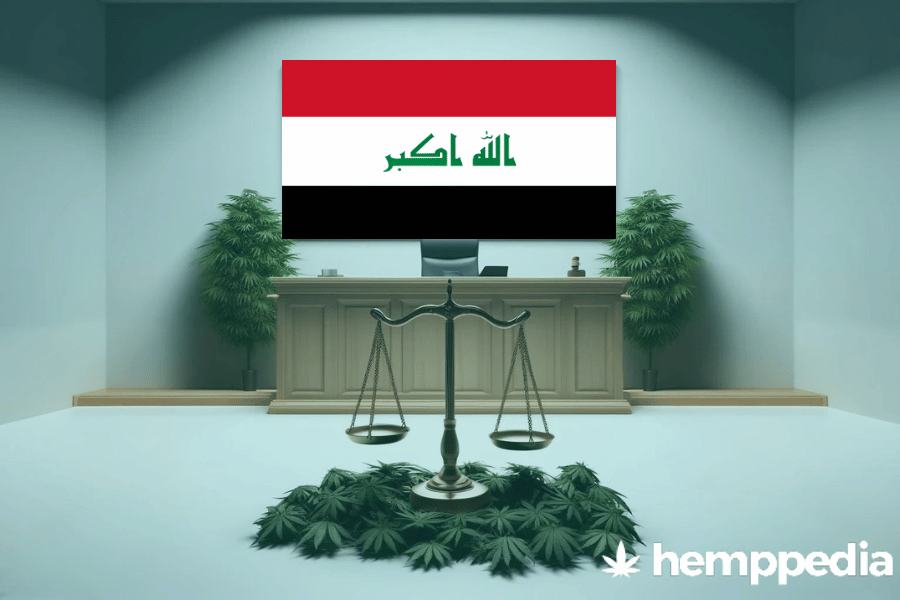Is CBD Legal in Iraq?
TL;DR: The legality of CBD in Iraq is a complex issue. As it stands, CBD and all cannabis-derived products remain illegal in Iraq. This blanket ban includes both recreational and medicinal use, and there is currently no delineation between CBD and THC-containing products. The worldwide trend of increased CBD regulation and acceptance has yet to reach the country. In this blog, we explore the intricacies of this issue in greater detail.
Overview of CBD Legislation
Key Terms:
- CBD: CBD, or cannabidiol, is a non-intoxicating compound found in cannabis and hemp plants. It’s purported health benefits include pain relief, relief from anxiety and depression, and reduced seizure activity among others.
- Hemp vs. Marijuana: Both hemp and marijuana come from the cannabis plant. The key distinction is that marijuana contains higher levels of THC – the ingredient responsible for psychoactive effects, whilst hemp has virtually none.
- THC Content: THC or tetrahydrocannabinol is the psychoactive substance in marijuana. Legal restrictions often hinge on the levels of THC present in a product. For example, in the US, products derived from hemp (which has THC content of less than 0.3%) can be legally sold
- Full-spectrum vs. isolate: Full-spectrum CBD products contain all the plant’s cannabinoids, including THC. CBD isolate products contain only CBD.
Legal Landscape: While there has been a global shift in attitudes towards CBD, this is largely not the case in the Middle East where most countries, Iraq included, still have stringent anti-cannabis laws.
Legal Status: In Iraq, cannabis or any derivative products – which includes CBD – are illegal. This is regardless of whether the products contain THC or not.
Regulatory Bodies: The regulation and enforcement of these laws fall under the jurisdiction of the Iraqi Ministry of Interior.
Conditions and Restrictions: There are no allowances made for any types of CBD products, and there are no specific restrictions on THC content because all such products are prohibited outright.
Historical Context
Illegal since the inception of modern drug policy in Iraq, cannabis and related products have consistently been prohibited. There have been few major legal developments specifically surrounding CBD, due to its association with the broader illegal cannabis category.
Possession, Use, Cultivation and Sales
There are no possession limits or age restrictions pertaining specifically to CBD because possession of CBD products is wholly illegal. Similarly, there are no regulations around the purchase, consumption, importation, or exportation of CBD products. Hemp cultivation and the manufacturing of CBD products are also prohibited.
Enforcement and Penalties
Non-compliance with drug laws in Iraq is met with severe punishments. This extends to any illegal substances, including CBD. The exact penalties for possession, sale, or cultivation can vary, but they can include imprisonment. There is no differentiation between legal consequences for medical vs. non-medical use. Currently, there are no established provisions for patients to access CBD for medical purposes.
Comparative Analysis
In comparison to other regions like Europe and America where CBD laws are increasingly liberal, Iraq has a strict and conservative stance on CBD. This is largely reflective of the broader Middle East region’s approach towards CBD and cannabis.
Conclusion
In conclusion, the legal status of CBD in Iraq is clear – it is wholly illegal, regardless of its intended use or THC content. This rigid stance contrasts sharply with the global trend of embracing CBD’s potential benefits. As for the direction of the future, only time will tell whether Iraq will eventually soften its stance on CBD.





